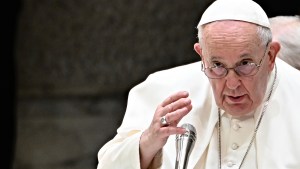Break-off churches and political separatist movements demonstrate a tendency of human life: resistance to larger, more diverse groups in favor of smaller, more homogenous ones. I feel that tendency locally, too: Most men’s Bible studies I’ve belonged to experience resistance to growth.
The process usually goes like this: The group has just hit its groove when new folks arrive. Perhaps a new arrival’s comments take the group in a direction I don’t like, or the discussion is halted so we can summarize the last few weeks. Or perhaps the new guy’s comments are more insightful than mine, and I worry that his presence threatens my status in the group.
There is an obvious reason that such a reaction is un-Christian. A principal purpose of a Bible study is spreading the Good News to those who haven’t heard it. That my own insecurity, ego, and preference for comfort sometimes obstruct this purpose reflects the growth in charity I need in order to love well new members.
But there is a more profound problem in such resistance to growth, and that’s the deeply un-Christian assumption it makes about reality: that there is always a trade-off between group size and group unity. The larger a group gets, the thinking goes, the more difficult it is to maintain common ends and common means to those ends. Most people also assume the inverse: the smaller the group, the stronger the unity.
God’s existence — or, more precisely, how He exists — refutes this assumption. We believe in one God Who is three divine Persons — a remarkable unity in plurality. This mystery prompted Joseph Ratzinger to remark in Introduction to Christianity that “to him who believes in God as tri-une, the highest unity is not the unity of inflexible monotony.” In the Christian life, unity is not the inverse of quantity. Rather, he writes:
“The model of unity … toward which one should strive is consequently not the indivisibility of the atom, the smallest unity, which cannot be divided up any further; the authentic acme of unity is the unity created by love. The multi-unity that grows in love is a more radical, truer unity than the unity of the ‘atom.’”
To achieve the unity of the atom — with the ultimate end of being closed off to others — is to achieve utter aloneness. The unity of divine love is always open to the other. The universe is founded on this unity, so Bible studies and Christian friendships could do worse to be founded on the same.
~
This is part of the series called “The Human Being Fully Alive” found here.


